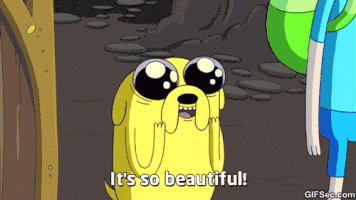As spam filtering has gotten better at stripping out viruses and malware that activated just upon opening the phone email, I've taken to reading the ones that have interesting subjects or senders.
Like this one, that let me know I'd won the UNICEF Lottery. Or this one, from a miltary man in dire straits looking for a way to get to America. And when they really intrigue me, I save them for future posterity.
But the one I received earlier. Y'all.
It's a thing of beauty.
So, for your enjoyment (and mine, let's be honest) let's break down the best spam/phishing email ever to exist.
From: US Federal Reserve Bank Corporate Office
Well, this must be important. Better open this up right now.
Federal Reserve Bank® Notification Of Your Compensation Funds 2018
Your payment files from three (3) different banks, Natwest Bank of London, Central Bank of Nigeria and Bank of America was compiled and submitted to my desk this morning for review. The total sum owed to you by the 3 banks mentioned above was sum up to the tune of US$15,500,000.00 (Fifteen Million Five Hundred Thousand United States Dollars).
I mean, I've never had accounts or done direct business with any of those banks. But, yeah, that money's totally mine.
Now the fund has been totally lodged in one particular Escrow account (non deductible) here in the Federal Reserve Bank New York on your name, while waiting for accreditation to your personal bank account in any part of the world.
I know what you're thinking. Yawn, typical spam email. But be patient.
Meanwhile, after due scrutiny and verification, I confirmed that you have fulfilled all the necessary obligations that will enable the release of your payment to you, but yet your payment was not released to you due to one flimsy excuses or the other from the Bank officials in charge of your payment, because they had the intention of diverting your funds to their private accounts in order to satisfy their selfish interest.
Those scoundrels! They will pay, I tell you. PAY!
You are however lucky that we the management of the US Federal Reserve Bank detected their evil plans and therefore call for the submission of your payment file to us so we can personally handle the payment assignment to ensure that you receive your funds accordingly.
Oh, thank you for foiling their evil plans! Thank you!
Now, all modalities regarding your fund release has been put in place here in the Reserve Bank of America, thus, your funds has been made ready for transfer in our sophisticated macro transfer system, what we need from you now is to provide to us the bank account of your choice which you want us to transfer your funds so we can expedite action for the accreditation of your funds into your account immediately. Below are the information needed for now for your transfer.
Personal Details:
Full Name:
Current Address:
Age/Gender
Occupation:
Direct Mobile Number:
Passport Copy, ID card or DL:Banking Details:
Bank Name:
Bank Address:
Account Name
Account Number:
Routing Number:
Swift Code:
Yeah, okay.
Note: If you prefer to receive your funds in form of a Visa Card, we could load and ship your Visa Card to your address which will permit you a daily withdrawal limit of US$3000 or write a draft check which can be deposited in any bank and send to you.
How thoughtful! I'll consider that!
In anticipating for your urgent cooperation
Yours sincerely,
Mrs. Janet Louise Yellen
Chair Of the Federal Reserve Bank
Federal Reserve Bank Washington, D.C.
E=MAIL ( federalreservebank011@wohnthier.de )
Co-chief Operating Officer,Reserve Bank®
Corporate Office, WD, Washington, D.C..
Federal Reserve Bank, N.A. Member FDIC.
This is what nailed it. 'Cause (in case you're unaware), Janet Yellen is no longer the Fed Chair as of a month ago, almost to the day.
This just tickles my funny bone. Yes, I get it--people fally prey to tech/internet scams ALL. THE. TIME.
Hell, I've done it. (Long story)
I just figure that the person out there, typing these messages (or cut/pasting them, whatever) deserves to have these gems read. Because while I'm not going to give them the result they'd like, I still am putting their work to good use. It's just benefitting me by making me laugh instead of benefitting them.













